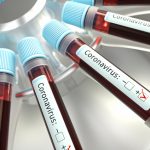“We are looking for not only a statistical difference, but also for a meaningful clinical improvement,” he said. “We expect to have results sometime from mid- to late May.”
A lack of hard evidence has given U.S. medical associations, as well as the National Institutes of Health, pause. They have not recommended remdesivir to treat COVID-19.
The Infectious Disease Society of America (IDSA), which represents more than 12,000 U.S. specialists, said it will make a formal recommendation once the entire body of evidence for remdesivir is available.
Dr. Rajesh Gandhi, MD, an infectious disease physician at Massachusetts General Hospital, Boston, who helped draft the IDSA guidelines, explained that most patients with COVID-19 will recover with little or no medical care. He is awaiting more clinical trial data before remdesivir can be deemed a useful therapy.
Early Intervention?
In general, doctors say they would expect remdesivir to work better if given early in the course of the disease. The drug, which previously failed as a treatment for Ebola, is designed to keep a virus from replicating in the body and overwhelming a patient’s immune system.
“You can put out a campfire, but once it becomes a wildfire it’s hard to control,” says Kevin Grimes, MD, an infectious disease specialist at Houston Methodist, which is participating in Gilead studies.
Gilead is leading its own trials of remdesivir, which is given to hospitalized patients as an intravenous infusion: One in patients with severe disease and the other in patients with more moderate symptoms.
The company expanded the number of patients it would enroll in the severe disease trial to 6,000 from 2,400, and expects results at the end of April. But that study does not compare remdesivir to another treatment or placebo.
The medical news website STAT last week reported that nearly all participants in Gilead-sponsored studies at a University of Chicago hospital saw rapid recoveries in fever and respiratory symptoms, and many were discharged in less than a week. The New England Journal of Medicine previously published an analysis showing that two-thirds of a small group of severely ill COVID-19 patients improved after treatment with remdesivir.
But it is impossible to know whether those outcomes can be attributed to the drug in the absence of a control group that did not far as well, since so much is still unknown about this new virus.
Still, these reports provide reason for hope given the desperate need as the virus rampages around the globe.


